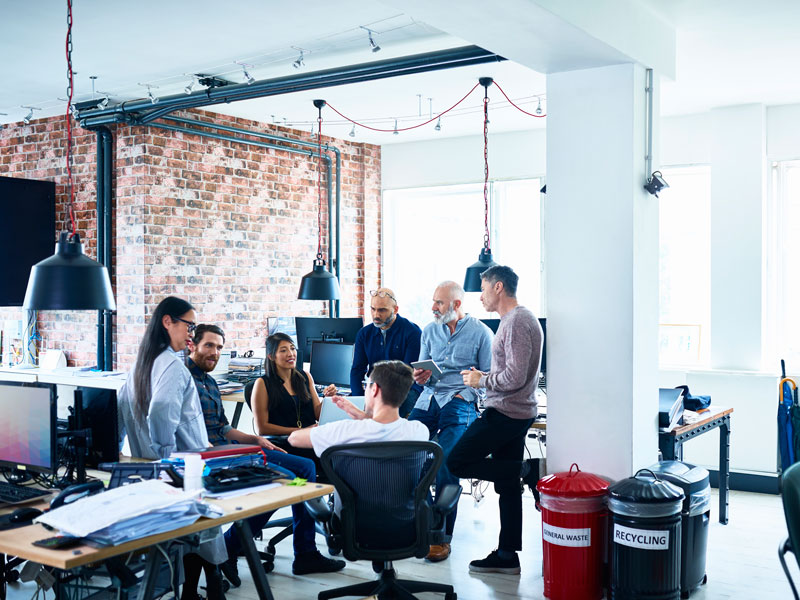
We’re currently witnessing something very rare. For the first time in history, five separate generations are all working together, redefining the future of the workplace. That includes everyone – from the Silent Generation and Baby Boomers to Generation X, Generation Y (Millennials) and Generation Z.
This represents a significant social, economic and cultural turning point, as it opens the door for organisations to transform their workspace and their culture in anticipation of a digital future. Successful companies will realise that, if they can learn to unlock the full potential of their people at any stage of their career, a multigenerational workforce will be a huge strength moving forward.
The way we work is evolving in tandem with this change, thanks to the multitude of technology and collaboration platforms that have been made available. Employees can now send group messages, participate in video conferences and collaborate on documents in real-time from anywhere in the world with a device and an internet connection.
Strength in diversity
There are considerable differences between these generations in terms of how they work, collaborate and communicate. For instance, Generation Z and Millennials tend to favour text and video-based communication over in-person interactions – the exact reverse is true for Baby Boomers and older generations.
Driving unity across a multigenerational workforce cannot happen without a commitment to professional development – from both employers and employees
There is no perfect science, but driving unity across this kind of workforce cannot happen without a commitment to professional development – from both employers and employees. Learning how to succeed in the digital world will take different amounts of time for different generations, but through technical training, employees will have greater amount of time to focus on more rewarding, higher value work.
Such rapid change also presents new security challenges for businesses: as the universe of connected devices grows exponentially, so does the sophistication and volume of cyberattacks and data breaches. In fact, cybercrime is forecast to be a $6trn (€5.34trn) problem by 2021, with a third of all companies globally having been breached already.
With digital platforms and ecosystems continuing to reign supreme, and digital security becoming more important than ever, the future workplace will have to continually be assessing and developing its security apparatus around endpoint devices, including PCs, printers and mobile phones, among others.
Embracing change
The reality is that the workforce of the future will consist of intelligent machines twinned with humans. The Third Industrial Revolution initiated this process decades ago – think of the extent to which automation is deployed on the factory floor of practically every major industry, from automotive and pharmaceutical to fast-moving consumer goods. The Fourth Industrial Revolution is already underway, and its emerging technologies will augment human capabilities, resulting in products and services that are yet to exist.
Many wonder what the role of humans will be as automation takes on a progressively greater role. My view is that there’s a significant benefit to the human workforce, with a recent study by Goldsmiths, University of London, finding that automation technology is actually making work more ‘human’ by freeing people from administrative processes and moving them towards higher value work.
Providing the tools
Inevitably this will mean that employers need to play a greater role in equipping employees with tailored learning and development programmes so that they can keep pace with the changes presented by the next Industrial Revolution. According to a study by Wainhouse Research and D2L, this is exactly what employees want, with workers of all ages keen to stay abreast of the latest tools and technology relating to their profession.
Ultimately, the right technology, training and focus on multigenerational communication will go a long way towards helping businesses embrace a digital future and truly leveraging the power of a diverse workforce.
Clearly, the future workplace will be dramatically different as automation and security continue to alter our surroundings. Understandably, this can seem daunting, but I am confident that when we come together – bound by technology – we can become more human in our interactions, communicate more clearly with those who are different from us and reinvent mindsets around the exciting, limitless possibilities of future work.

